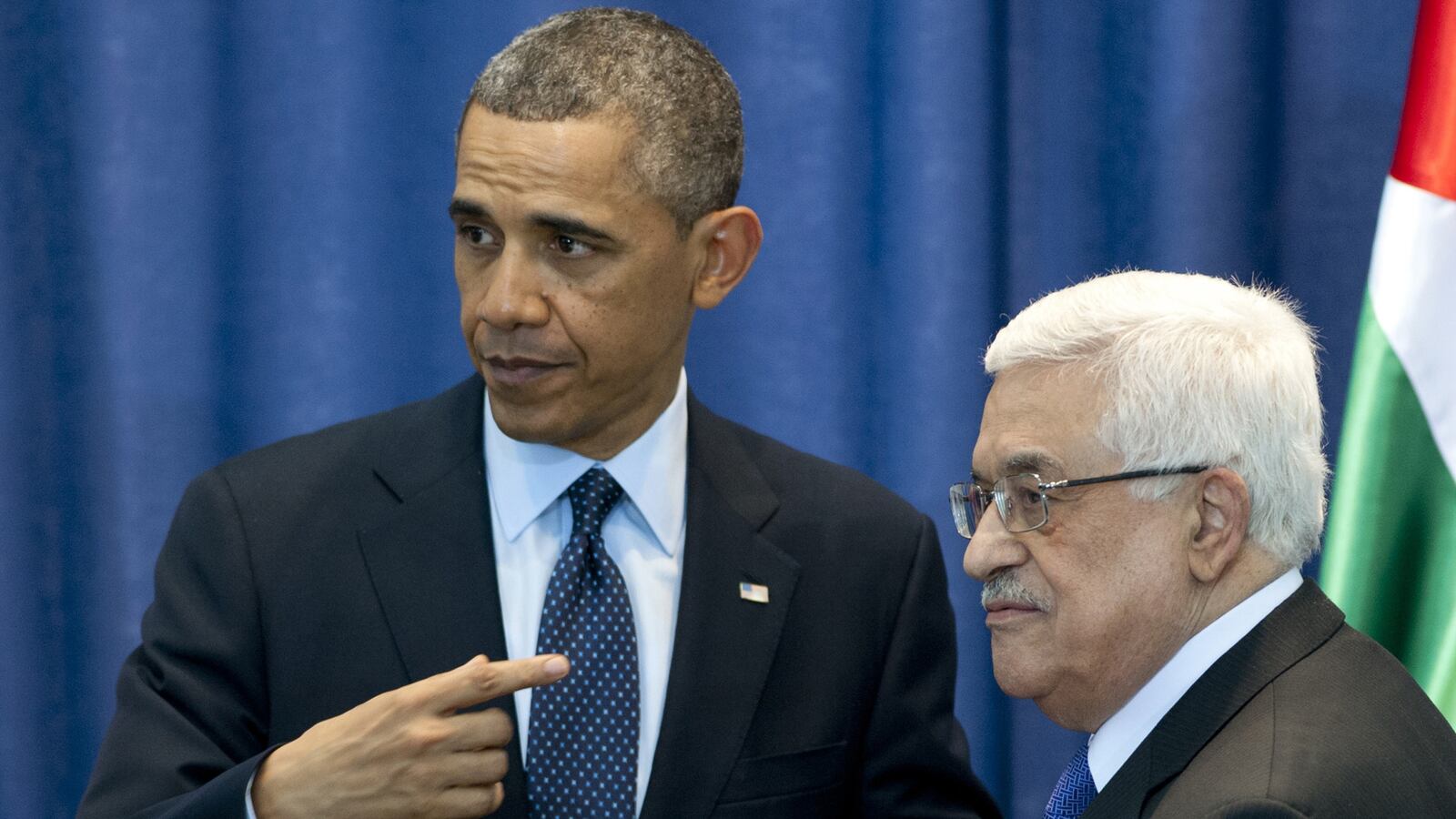As part of his efforts to restart negotiations between Israel and the Palestinian Authority, John Kerry has reportedly asked Mahmoud Abbas to promise that he won’t try to bring Israel to the International Criminal Court (ICC). To many observers, this may seem like a modest request. After all, the U.S. has long made clear that it opposes efforts to engage the ICC in the conflict. Moreover, the PA hasn’t actually taken any concrete steps to initiate a case against Israel since winning its U.N. statehood bid last November, which suggests that it, too, may be ambivalent about the wisdom of moving forward.

And yet, getting Abbas to give up his right to approach the Court could prove exceedingly difficult. Last fall, in the run up to the statehood bid, the U.S. and the U.K. went through great pains to try to convince Abbas to guarantee that he wouldn’t use the new status to bring Israel to The Hague. But despite all the pressure, the PA refused to make any such promise. Today, domestic Palestinian politics make the PA even less likely to surrender its right to petition the Court than it was in the past.
The PA has recently been facing mounting pressure at home to go to the ICC. From the Fatah youth movement, to Palestinian academics, to Al Arabiya broadcasts, a chorus of voices has been urging the PA to go to the Court, chastising Abbas for failing to do so already. “Israel’s injustices are bad enough,” wrote one Al Arabiya columnist, “but not utilizing the means to effectively counter and end them"—i.e., going to the ICC—"is even worse.” He concluded with a call for a national protest movement to spur the PA into action.
Abbas cannot afford to take these taunts lightly. With talk of another Intifada or a Hamas takeover of the West Bank now commonplace, the PA desperately needs to show that its methods, including the U.N. statehood bid, have yielded dividends. Starting a case at the ICC offers one way of making that point.
Considered in this light, it’s not surprising that a PA official announced late last month that the leadership had finally decided to bring its case to The Hague. The announcement, which was issued on February 25th, just two days after the death of Palestinian prisoner Arafat Jaradat, was doubtless designed to pacify the PA’s rioting vengeance-seeking constituents. A few days later, as protests still raged across the West Bank, the PA’s foreign minister confirmed that the government planned to move forward.
These announcements appeared to mark the first time the PA had ever actually promised to go to the ICC since winning the statehood bid; it had threatened to pursue legal action if Israel followed through with various plans on several occasions, but had never actually promised the Palestinian people that it would do so. If the PA backs down, particularly if it does so in the wake of the Obama visit, it will face familiar charges of being a weak and ineffectual Western stooge.
Of course, none of this guarantees that Abbas will go to the Court, or that the John Kerry has no chance of persuading him otherwise. In fact, the significant risk that Palestine would lose an ICC case may actually make Abbas hope that the U.S. will provide him with a viable exit ramp.
But it is clear that Abbas will pay a very heavy price at home for succumbing to American pressure to retreat. And for as long as he feels his day-to-day political survival is in jeopardy, we can expect his political calculations to be geared towards pleasing the Palestinian street, not Washington. To offset this bias, Kerry will need to provide assurances that the U.S. will do its utmost to help tackle other sources of the PA’s political weakness—particularly on the economic front—if he is to have any chance at success. Paradoxically, then, the best, if not only, defense John Kerry may have against a brewing ICC petition is not to threaten retribution, as some other diplomats have done, but instead to convince Abbas that the U.S. will make a serious investment in strengthening the PA.






